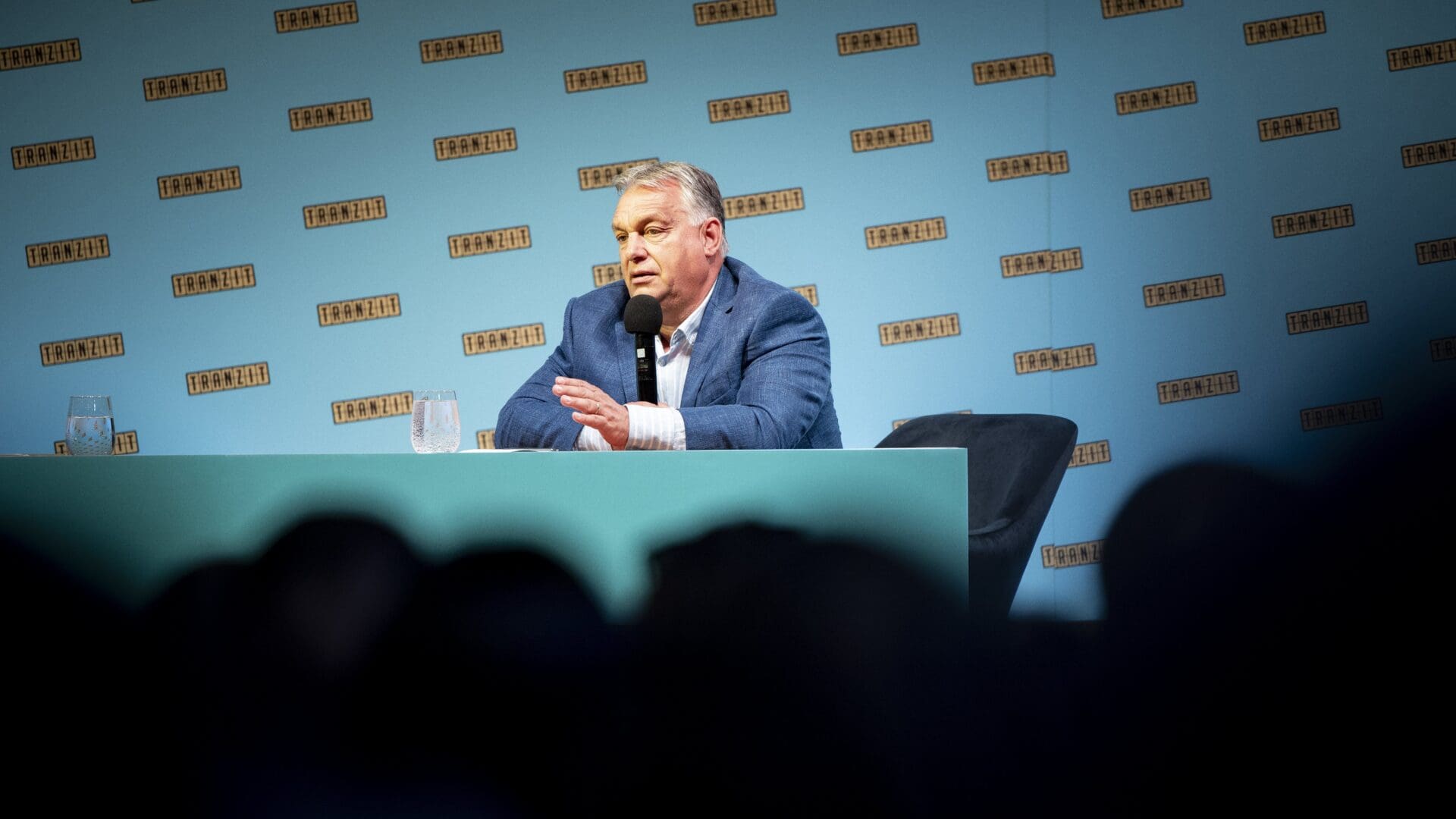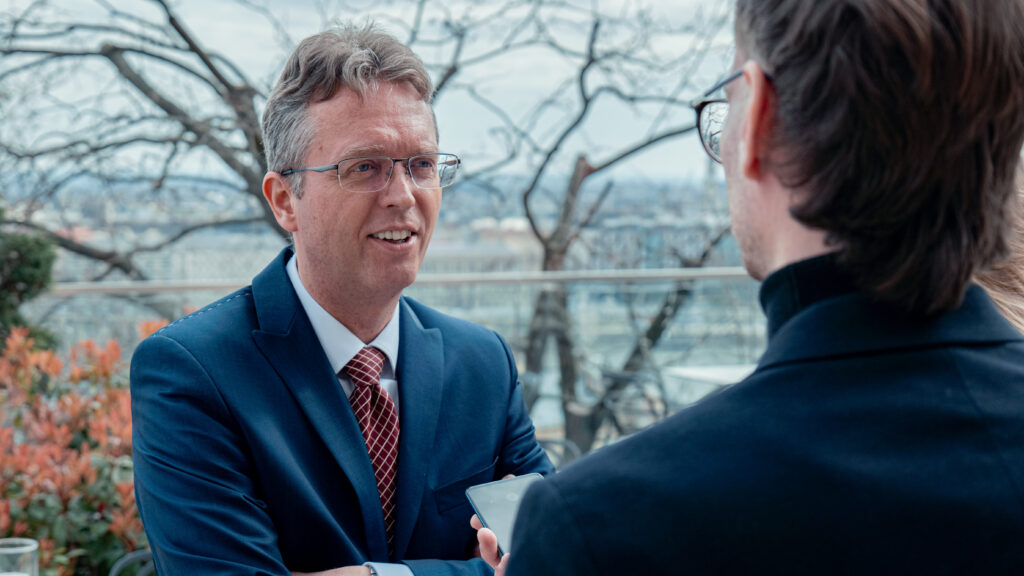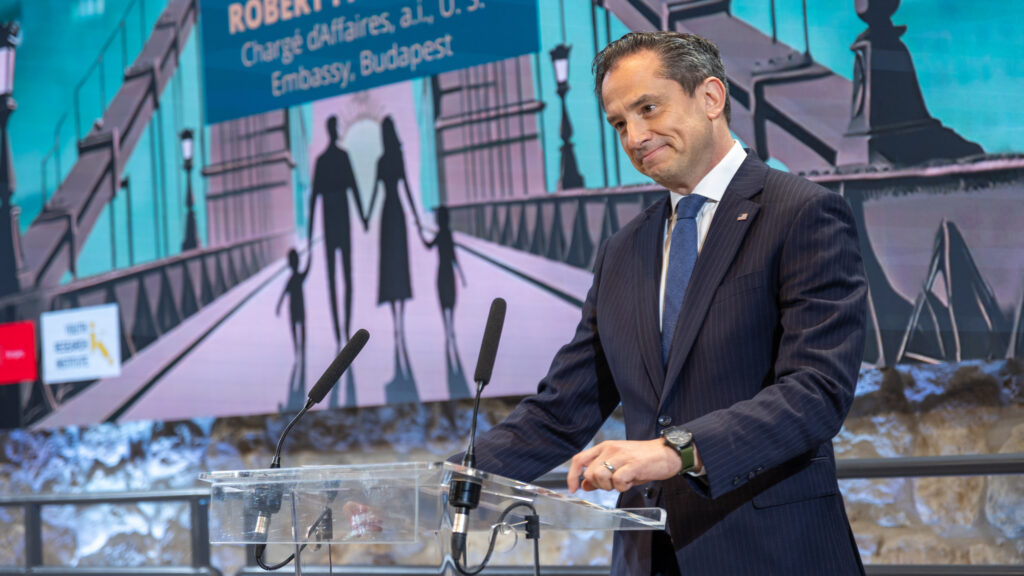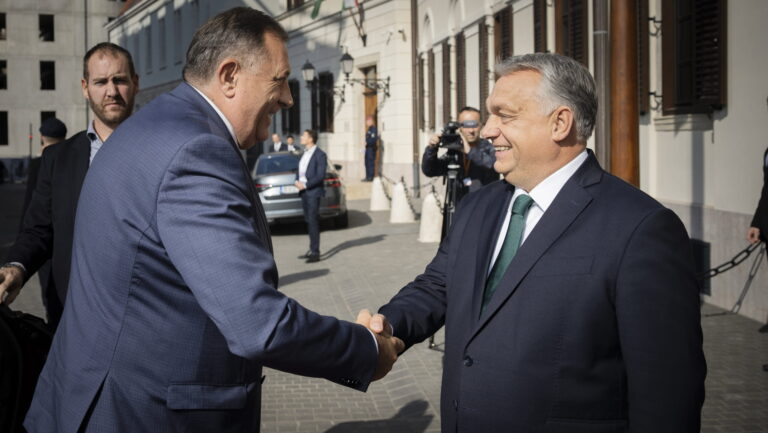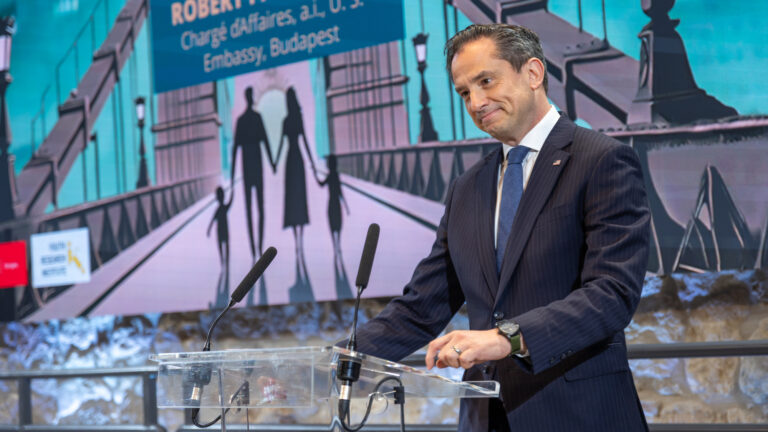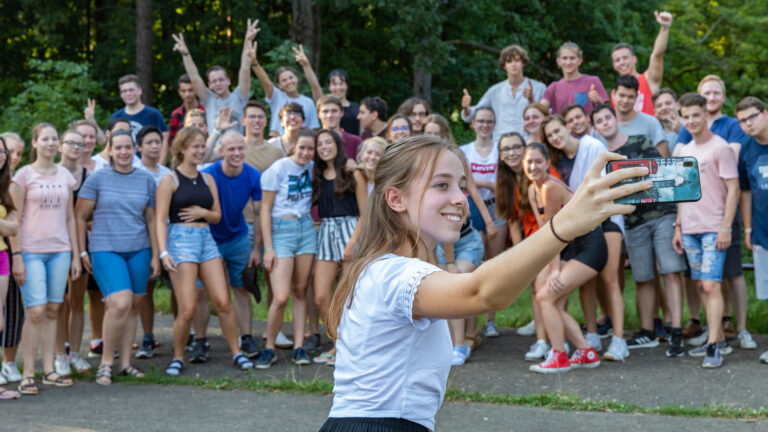‘To be Hungarian is not an accident, but a task, a mission; probably one of the most beautiful missions in the world,’ Prime Minister Viktor Orbán declared at the Tranzit festival in Tihany on Friday.
The PM stated that a German or an Anglo-Saxon does not have a comparable mission, because as opposed to their language,
Hungarian will only survive if it is consciously sustained.
Viktor Orbán pointed out: the first thing young people need to clarify is whether there is a homeland, and whether being Hungarian matters. According to the PM, one needs to ask oneself the question whether being Hungarian is the result of a biological coincidence, or that by being born Hungarian, one entered a situation, a context, a flow. Orbán suggested that all must understand and answer the question: ‘is it good to be in the Hungarian flow’, and whether that fact implies some duty or task? Once a person has clarified this, it is possible to stand firmly on the ground. With those who are like-minded about that a substantial national army can be created in a spiritual-political sense, Orbán stressed. He emphasised that there is an area, the Carpathian Basin, which, like a heart, sometimes contracts and sometimes expands and it is the people who cultivate it, who for the past 1100 years we have made it their home.
The PM also remarked that Hungarians have strengths that can be turned into success. He referred to the unique culture, identity, and language, and Hungarian creativity and quick-wittedness. He explained that for Hungarians with a history of a thousand years of statehood, the concept of nation means something different than, for example, Germans, who were fragmented until the 19th century, and described this
as a huge competitive advantage for Hungary.
He also stated that for him, politics is the ability to act together. And if this is combined with the nation’s unique attributes, ‘then all is fine, then we will fix everything that was messed up before our time.’
Viktor Orbán also argued that in terms of attractive media presentation of political topics and forming linguistic frameworks, the conservative democratic forces are still far ahead of liberal democratic forces. The two-thirds majority stands firm like a tree, and it is so large that its end cannot be seen, he declared.
Speaking about whether it is ‘unnatural’ that Fidesz has been in power for so long, he analysed the larger historical context behind the current strength of the conservative forces, referencing post-Compromise and 20th-century Hungarian politics. Orbán underscored that due to Hungary’s geography, history, and size, it is a constant historical phenomenon that a great national governing party emerges sooner or later in each era. He believed that this would have been the case after World War II as well because if the Soviet Union and the Communists had not eradicated democracy altogether in Hungary, then the Smallholders’ Party would have remained in power for a long time. He also pointed out that this is a European phenomenon, so Hungarians do not need to be ashamed or apologise for the fact that politics in Hungary has a tendency of occasionally giving rise to major national parties, which receive authorisation through elections for longer periods of time.
He likened the difference between the governing parties and the opposition to professional and amateur soccer:
amateurs run towards the ball, while professionals run to where the ball will be.
He added that there is a ‘distance in perspective’ between the current governing party and the opposition; the opposition parties ‘pounce on an issue’ and ‘create a commotion,’ whereas the current ‘great national governing party’ has a vision for the short, medium, and long term, along with tactics and strategies.
At the same time, he continued, it is not only the current state of the Hungarian left that needs to be considered, but also who stands behind it. He argued that there are major financial groups who have clear intentions for the world, Europe, including Hungary, and seek their agents and find them within the Hungarian left. ‘In this sense, when I compare the power dynamics in this international arena, they are Goliath and we are David. And we’ve shot them well with a slingshot quite well four times in the recent period, and we would like to maintain this habit,’ he nailed down.
Regarding the murky campaign financing of the opposition forces before the previous election, he said that there was no doubt that the opposition had media and financial advantage, with resources ‘incomparably larger’ compared to the conservative side.
In response to a question comparing former communists to today’s Western mainstream, Orbán also spoke about how the worlds of liberals and communists seem very distant at first glance. However, after the collapse of the communist regimes,
a significant portion of communists turned liberal,
although some would have thought this was impossible. He noted that in Europe, a battle is raging between the concept of nation-states and imperial concepts, and that for Hungarians, the existence of a nation-states is important. Both ideas are European traditions, and as long as they are in balance, the European machinery will keep working fairly well, he opined.
Looking beyond Hungary, Orbán criticised the European People’s Party, remarking that the largest European right-wing alliance is not fulfilling its mission of fighting against empire-building and standing up for nation-states and national independence. ‘It shirks the work,’ and instead of building and offering an alternative to empire-building for the European people, it constantly cooperates and forms coalitions with the left, and adopts its topics, interpretations, language, and linguistic frameworks.
According to Orbán’s assessment, there is no internationally competitive, organised conservative power field because the opponent skilfully exploits the advantage of their gained position, and the internationally organised conservatives are not talented enough, persistent enough, and don’t put enough effort into overcoming the disadvantage. The Hungarian right-wing has been lucky, he suggested, as two things are needed for victory: to be good and for the opponent to be not good. ‘We have done an incredible amount of work,’ he said, but for a stable, long-term, and strong majority to be formed, the left was also needed. ‘We were lucky with our rivals; God repaid to us the forty years they took from us,’ the PM added.
With regard to the war in Ukraine, he said that hundreds of thousands have lost their lives, so the most important thing is to stop the bloodshed. A ceasefire is needed first, and only after that will there be time to develop a peace plan, he suggested. The PM remarked that the globalisation of the war was a mistake, with only Hungary advocating for it to remain localised.
Related articles:
Sources: Hungarian Conservative/miniszterelnok.hu

